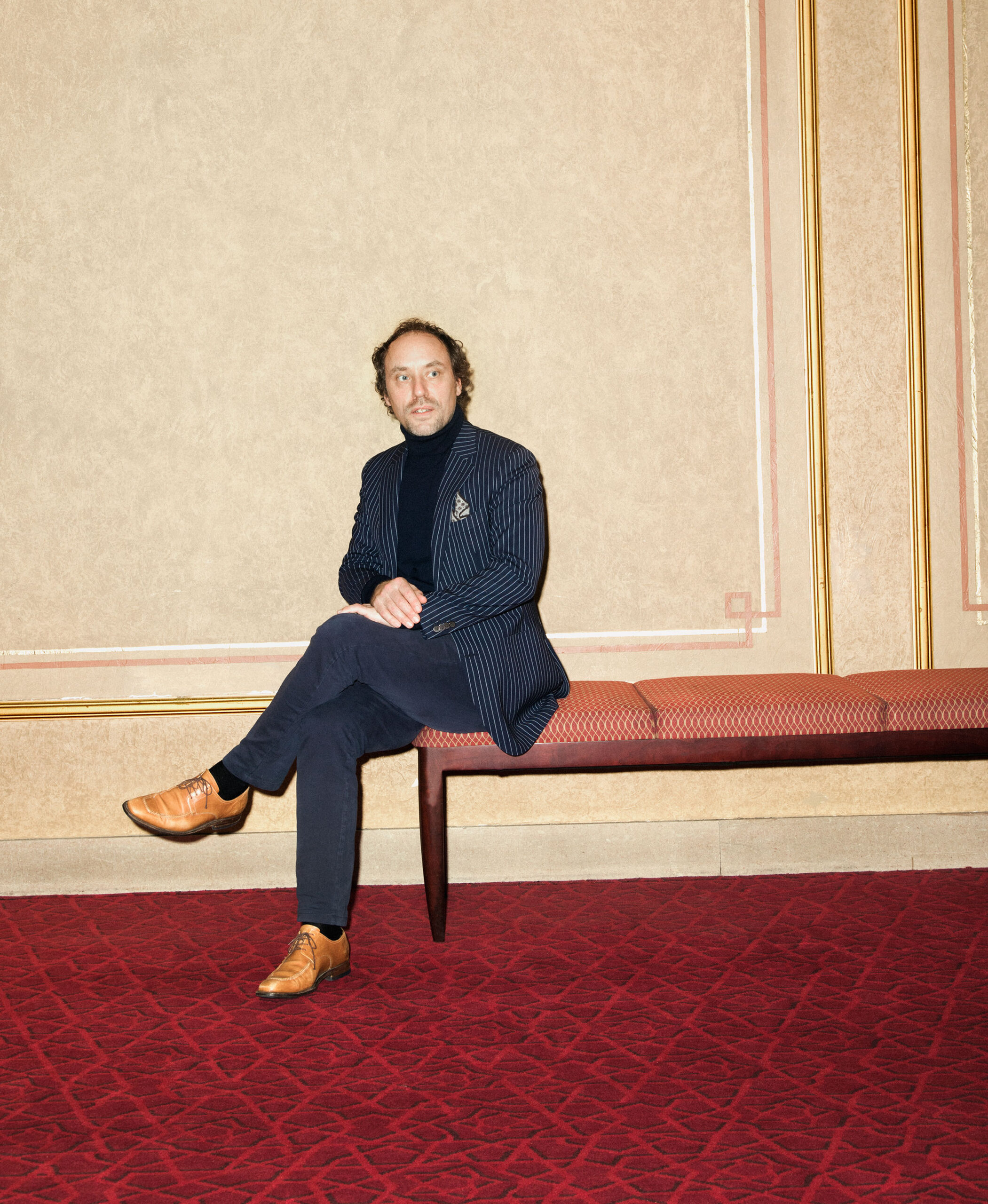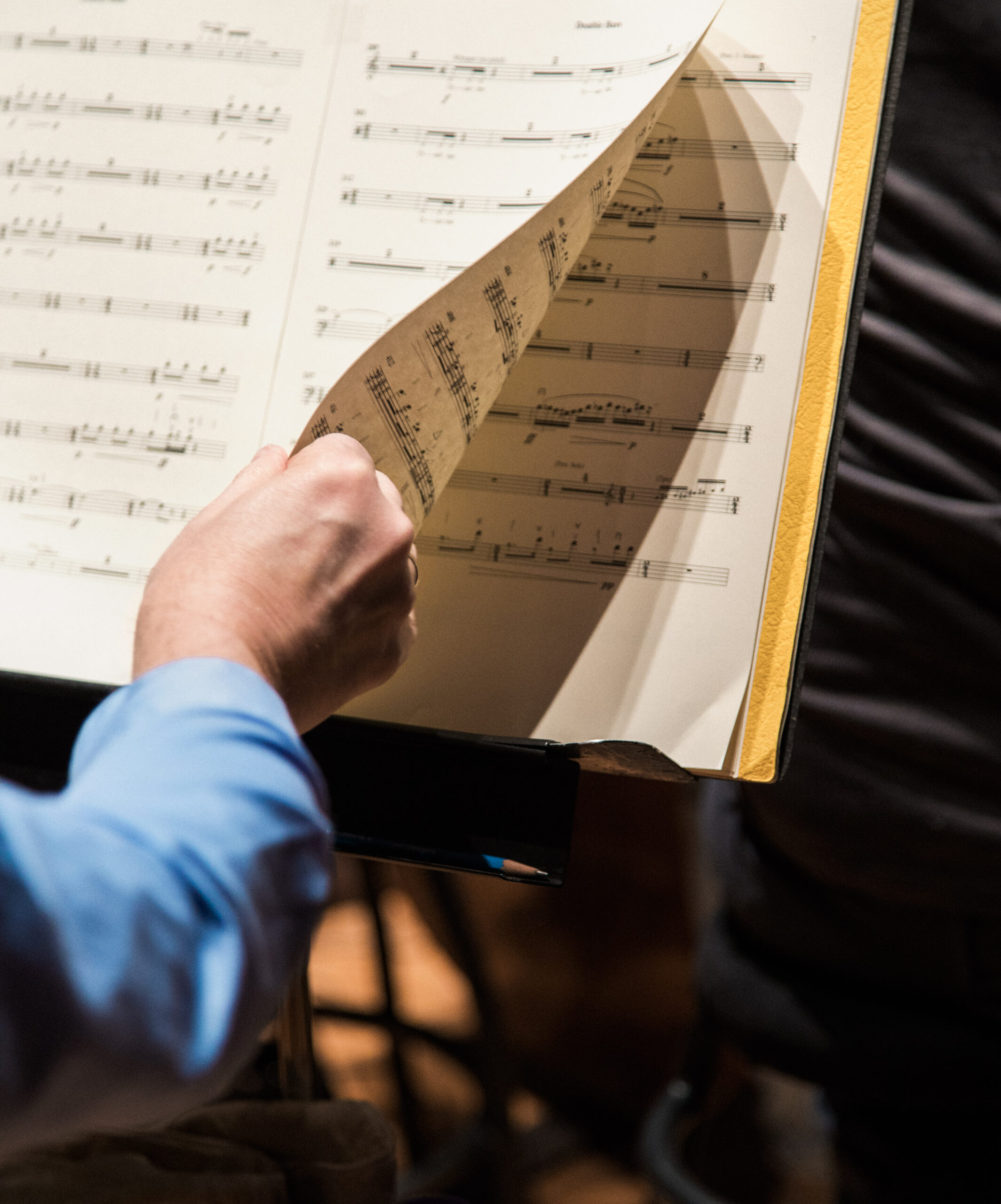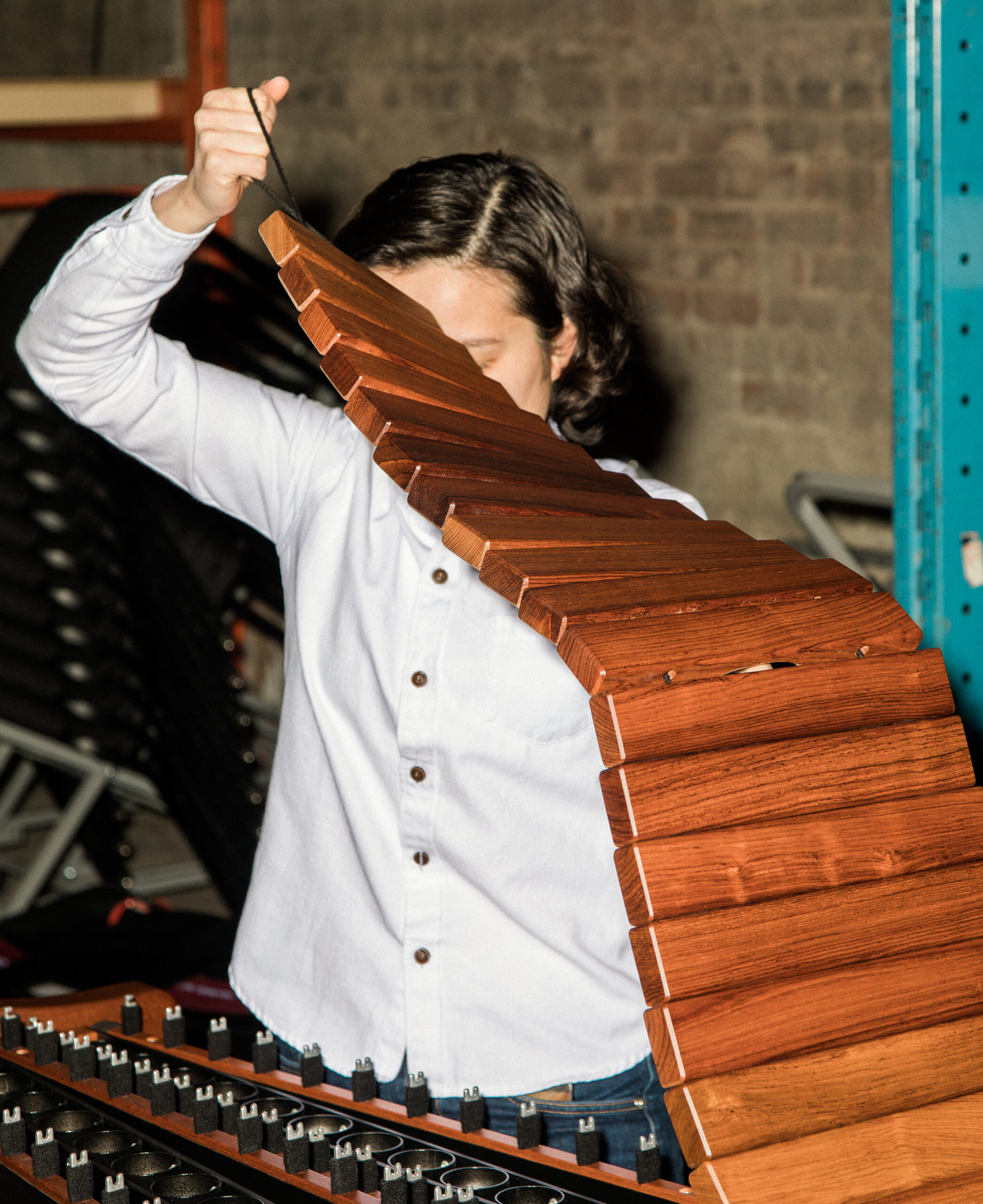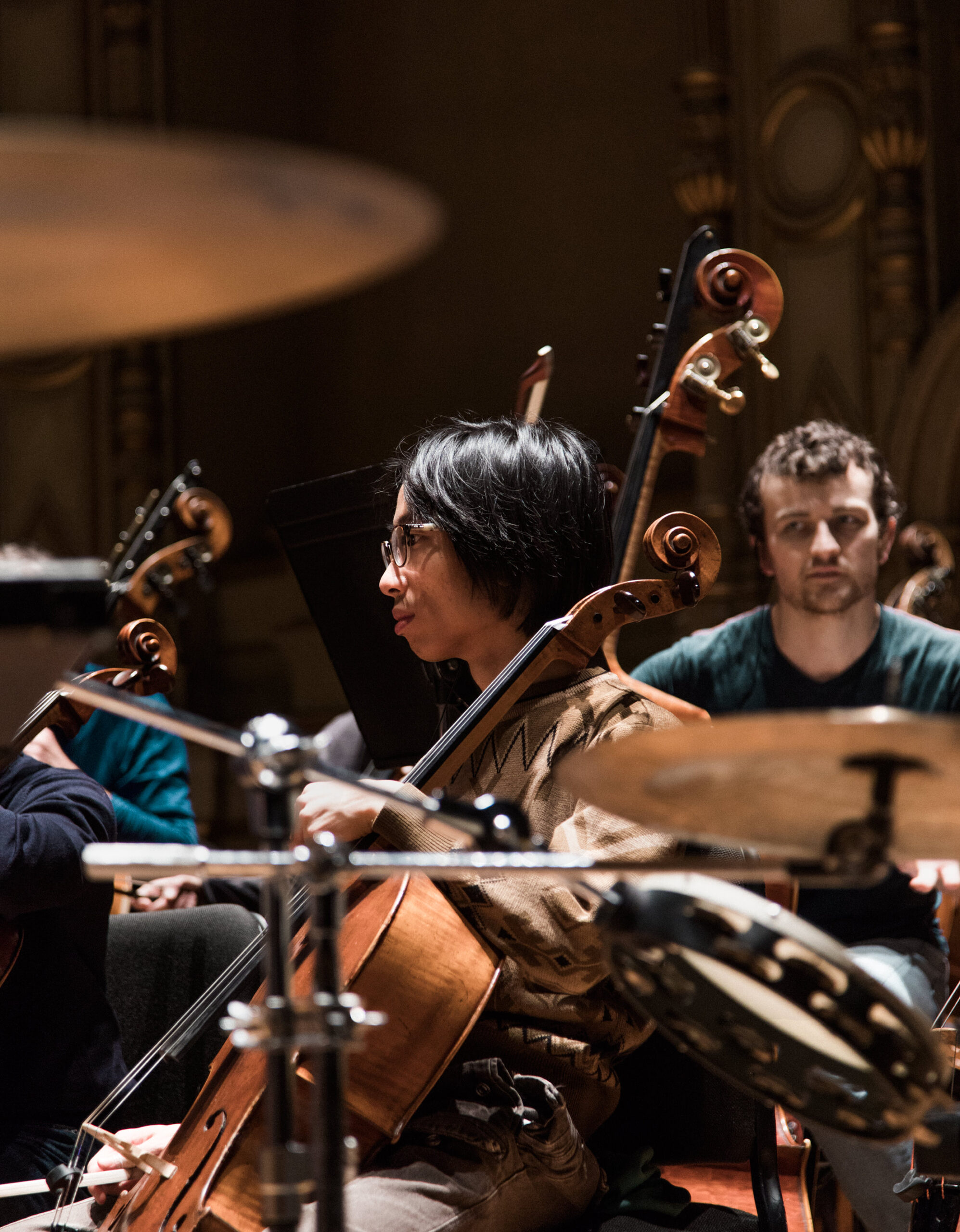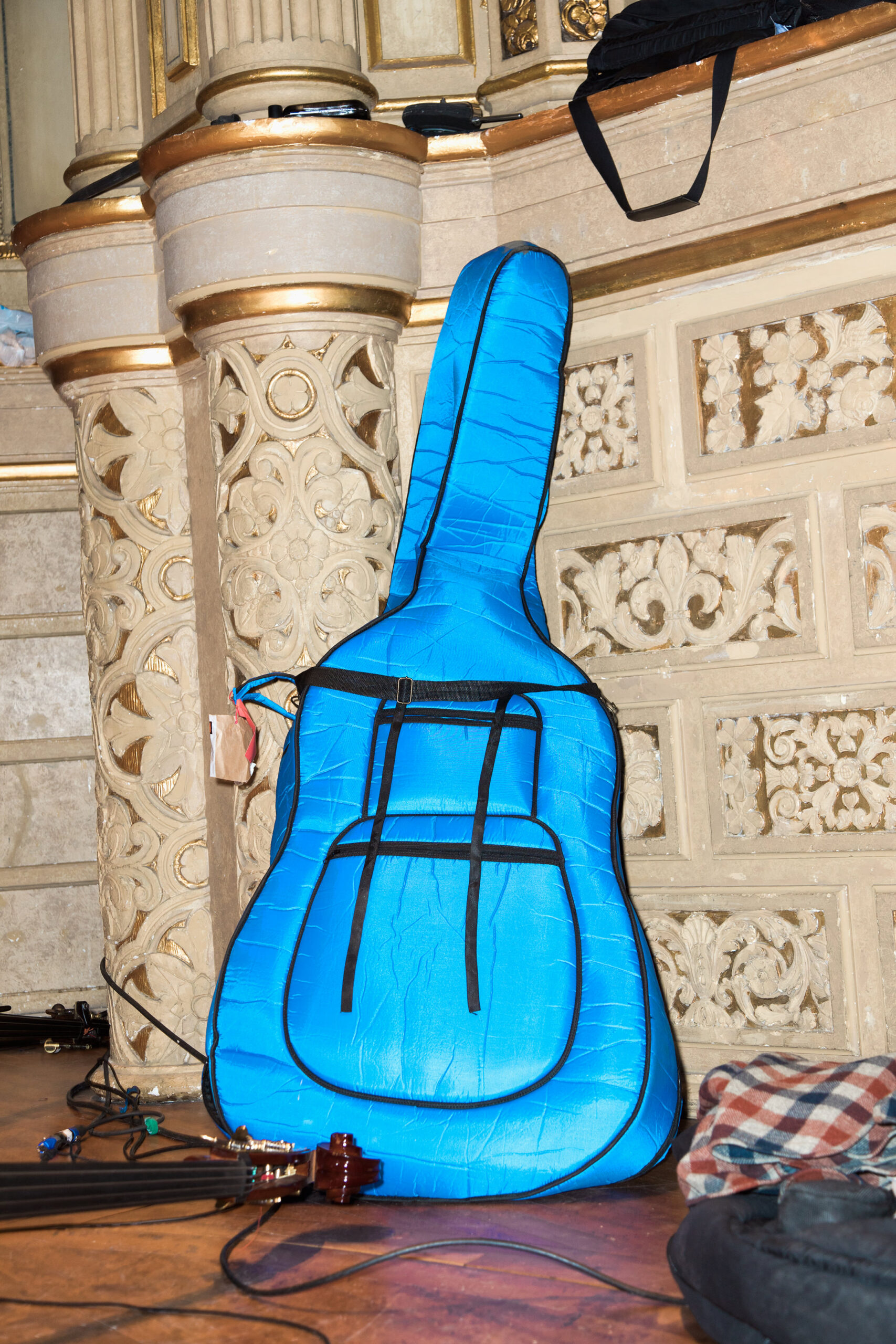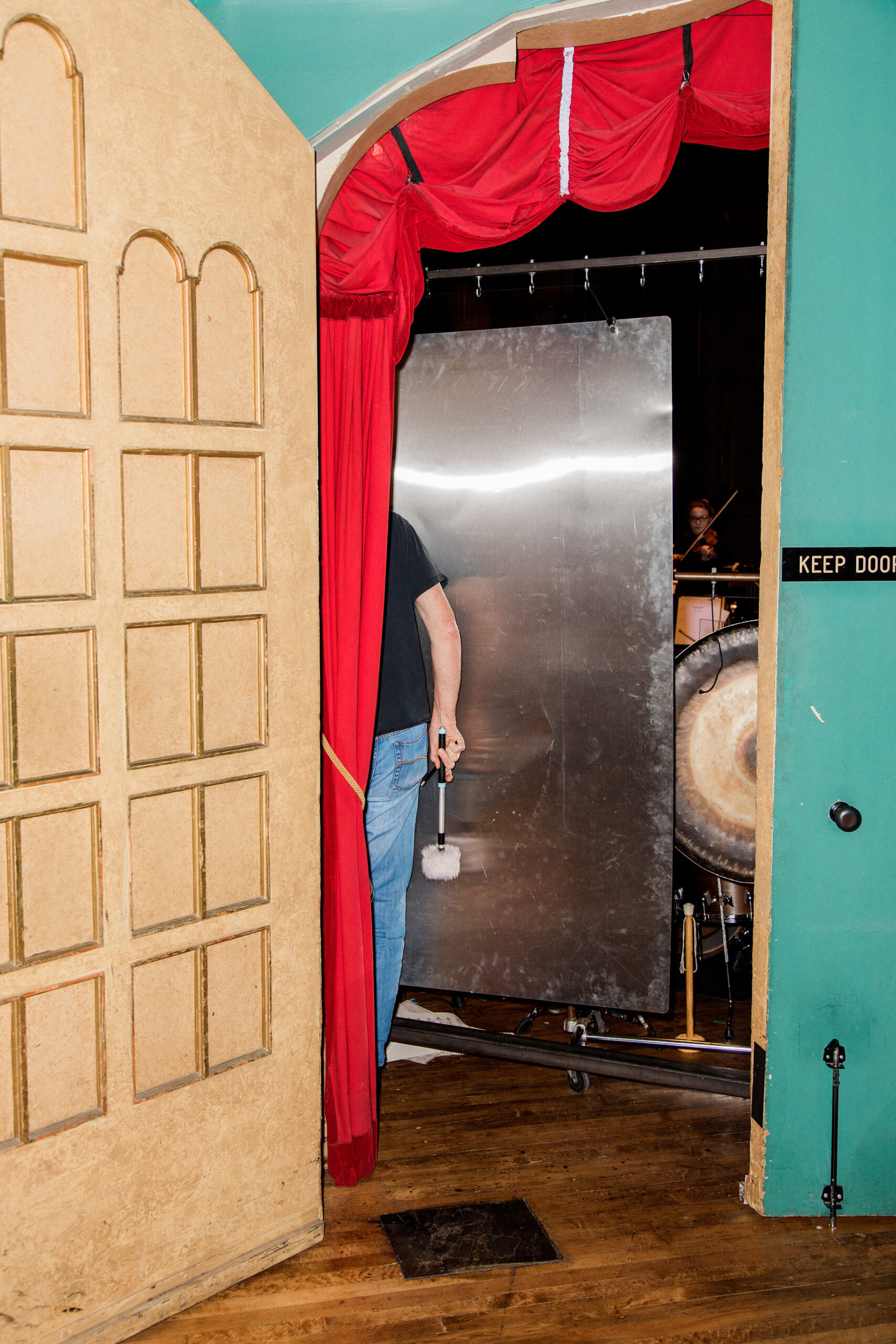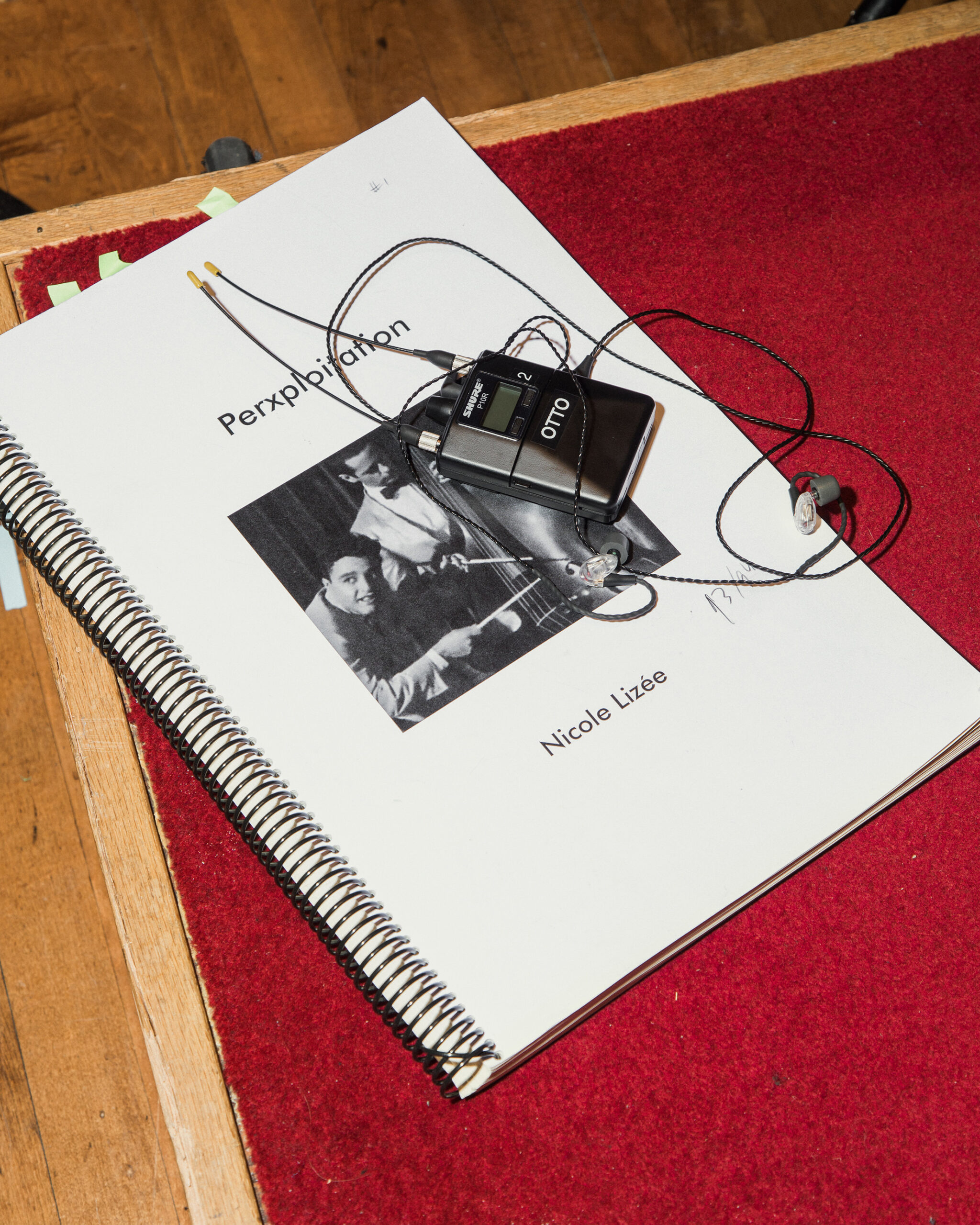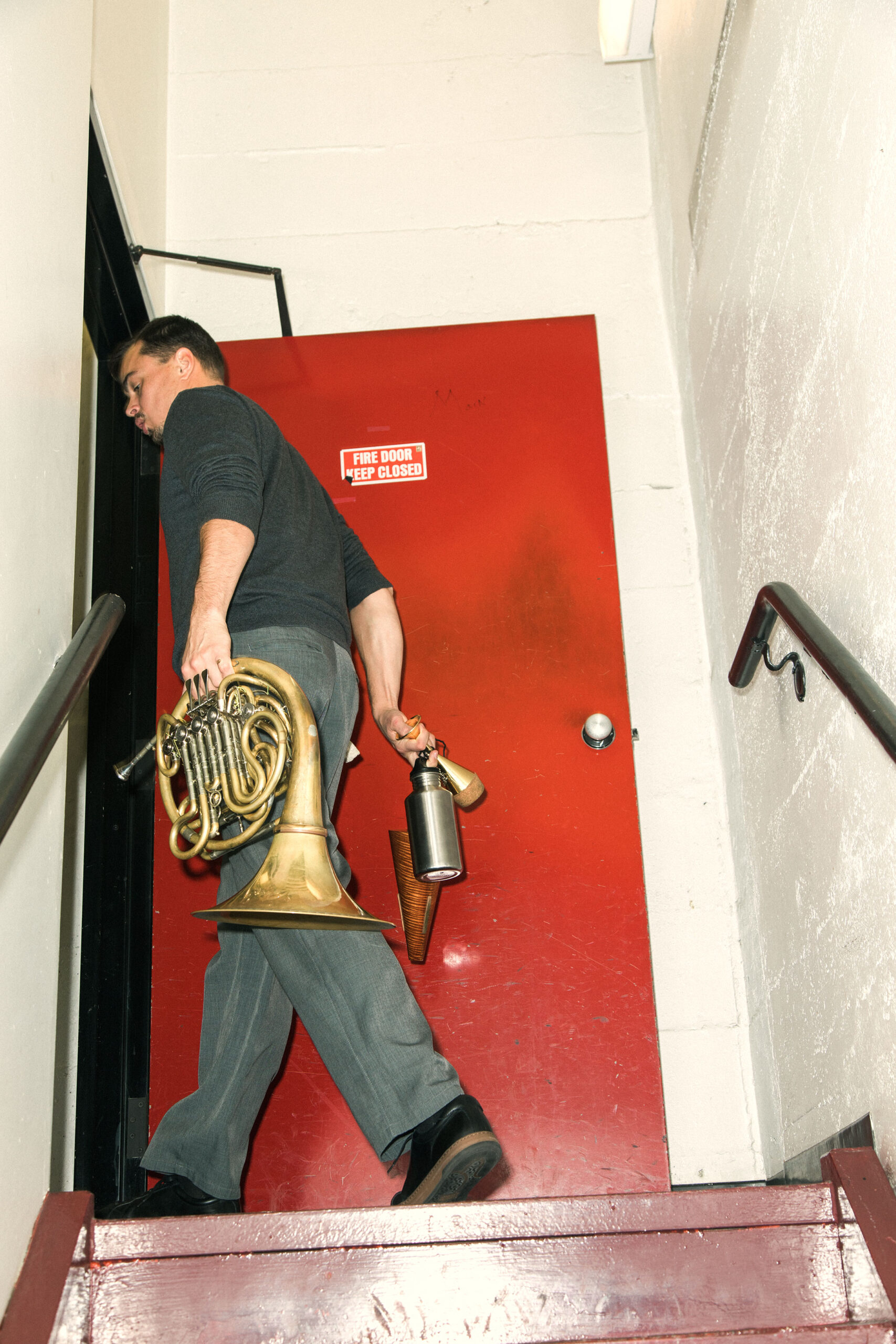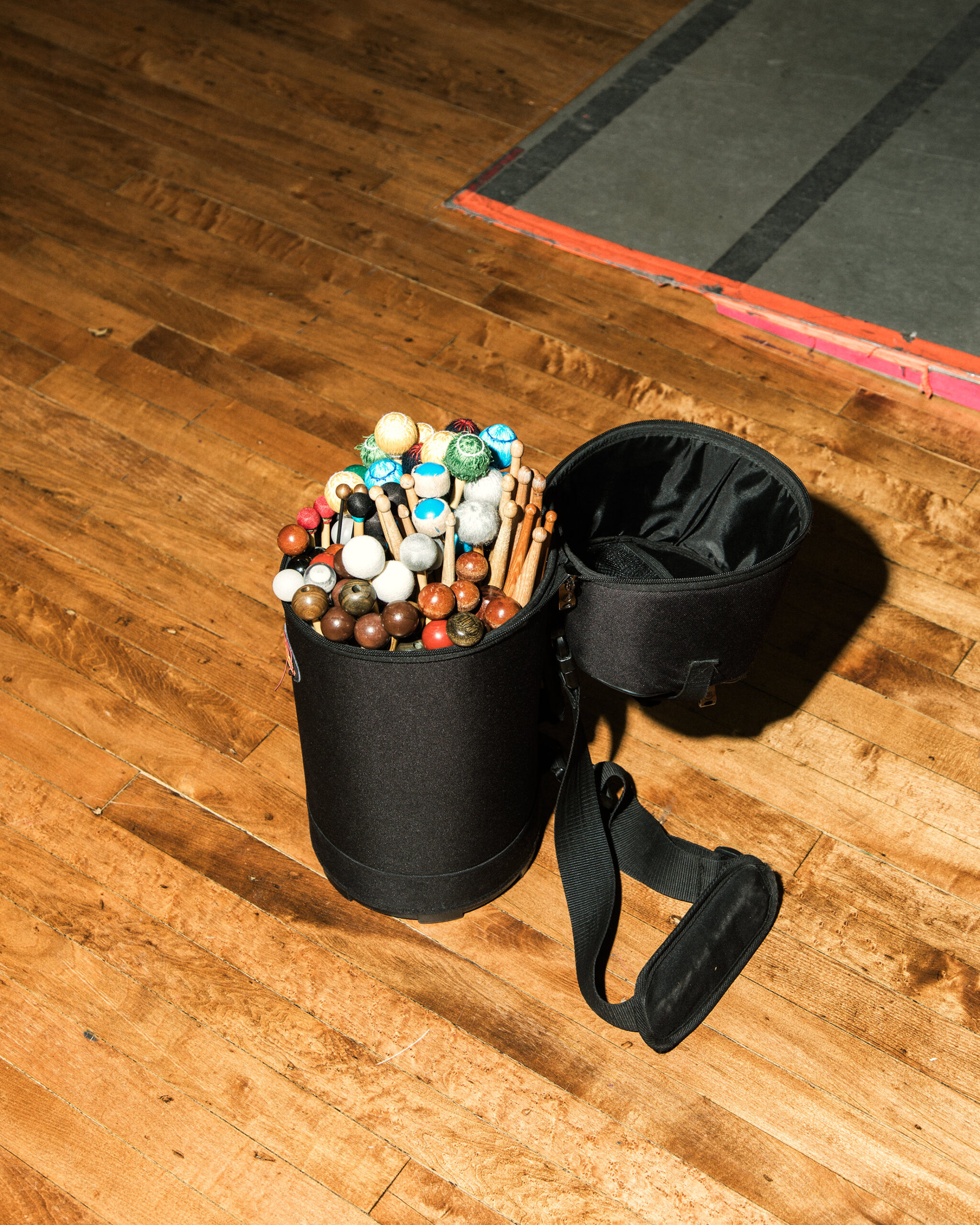There is a sense of gravitas and deliberateness as the Vancouver Symphony Orchestra rehearses at the Orpheum Theatre under the dutiful watch of their new music director, Otto Tausk. “There’s a small coda here,” the Dutch conductor instructs the musicians. “We will not stop at the coda, but we do need to make it very clear.” Several pieces are rehearsed throughout the day, including Claude Vivier’s Lonely Child, sung by Nathalie Paulin. The soaring voice of the soloist is heard above an accordion of broken sounds; it takes a lot of discipline and precision to play off-key, creating an intensity that traps listeners in a melodic loop.
Another piece tackled is Nicole Lizée’s Perxploitation, a symphony-commissioned concerto for percussion that combines sound with experimentally-cut clips from old movies. Indeed, this is a serious environment in which world-class musicians perfect their craft before sharing it with the public—but occasionally, a happy accident like the clink of something falling and the laughter that ensues breaks the tension. The rehearsal also serves as a way of finding the “sweet spot,” where harmonies meet for both audience and orchestra; every so often, Tausk checks in with assistant conductor William Rowson to learn what exactly the crowd hears from their seats, and how well. “Can you hear the whistling over there?” he queries. (For the record, the best spot to listen is the front of the balcony.)
For its 100th season, the Vancouver Symphony Orchestra (VSO) welcomed Tausk as its new music director, concluding the 18-year tenure of the beloved and celebrated Bramwell Tovey—the organization’s longest-serving leader. “If you can stay with an ensemble for that long, that must mean you’re doing something really good,” Tausk says, reflecting on the work of his predecessor. “Nowadays, people move on to another orchestra after a shorter period, and I think if you’re committed to a certain orchestra, to a city, and to an audience, it’s good to stay there for a fair amount of years, to shape the sound of the orchestra and to take good care of the bigger picture of what you’re trying to say with music, and how you want to communicate it to the audience.”
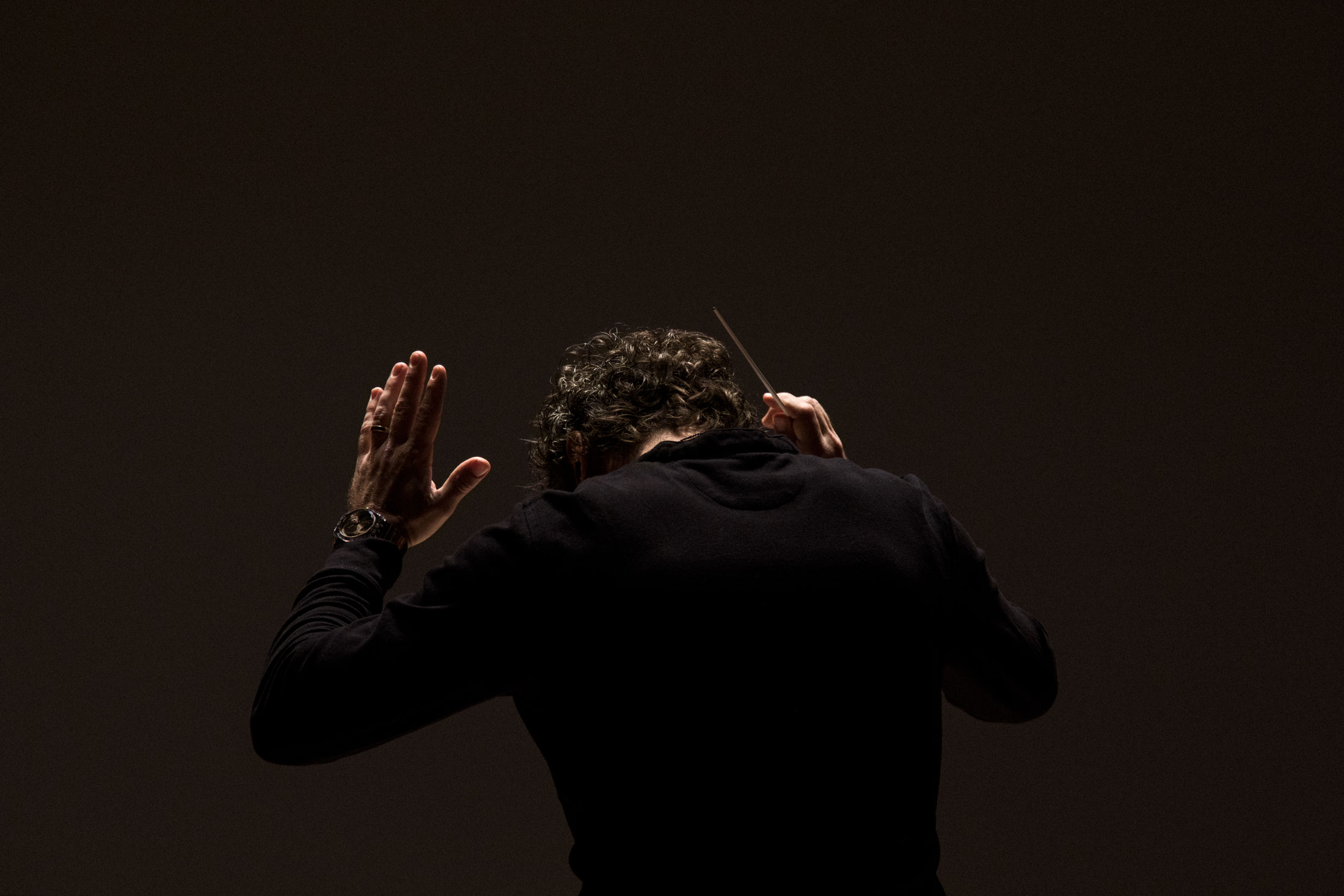
Tausk—who most recently held the position of music director for the Tonhalle and Theater St. Gallen in Switzerland, and has also worked with the likes of the Danish National Symphony Orchestra, Los Angeles Philharmonic, Melbourne Symphony Orchestra, and Mariinsky Orchestra—first came to Vancouver as a VSO guest conductor a couple of years ago. But that type of gig, while fun and exciting, is a bit like having what Tausk playfully refers to as a “musical affair.” You stay a short while, then move on to the next orchestra. Marriage, however, is a different matter.
“I’m just getting to know them and they are getting to know me,” he explains of his newlywed status with the VSO. “We’re in what you’d call a honeymoon phase where you both are very much in love and you don’t worry about what the future might bring.” As that relationship blooms and deepens, though, there begins a more lively exchange of musical ideas and long-term goals—and Tausk is ready to make an impression.
Of course, it all starts in rehearsal. “The things that I find really important are discussed during the rehearsals. But a lot of it is done without words,” he explains. “It’s done by just communicating through music. And I think every conductor has its own or his or her own personality style, sound articulation, intellectual ideas, musical ideas, and it shapes the music.”
Tausk’s style began forming when he was studying violin with famous Russian musician Viktor Liberman in Amsterdam. One day, his teacher suggested that he might consider conducting. When Tausk asked why, Liberman replied, “I don’t really know, but it feels like that could be something that suits you.” Tausk jokes now that perhaps he just wasn’t cutting it as a violinist, but soon enough he found himself playing in an orchestra as a concertmaster, and one day during rehearsal the conductor was ill. “It’s a classic story,” Tausk recalls. He proceeded to stand up and conduct the piece, and sure enough, he was hooked. “The funny thing is, I don’t really miss the violin,” he reflects. “What I do miss sometimes is when you play an instrument, you have a physical contact with the sound, you feel a string vibrating. Or if you play the horn, you feel the air going through the instrument and producing sound. I don’t have that.” Instead, he prepares the scores in his mind, running through them instrument by instrument. “I try to imagine how they play physically, what they have to do to play it, and that helps me conduct and helps me know when I can be of use to them, or when I should actually stay away,” he explains. “Because many times, conducting is more about knowing when you should take a step back and not get in the way.”
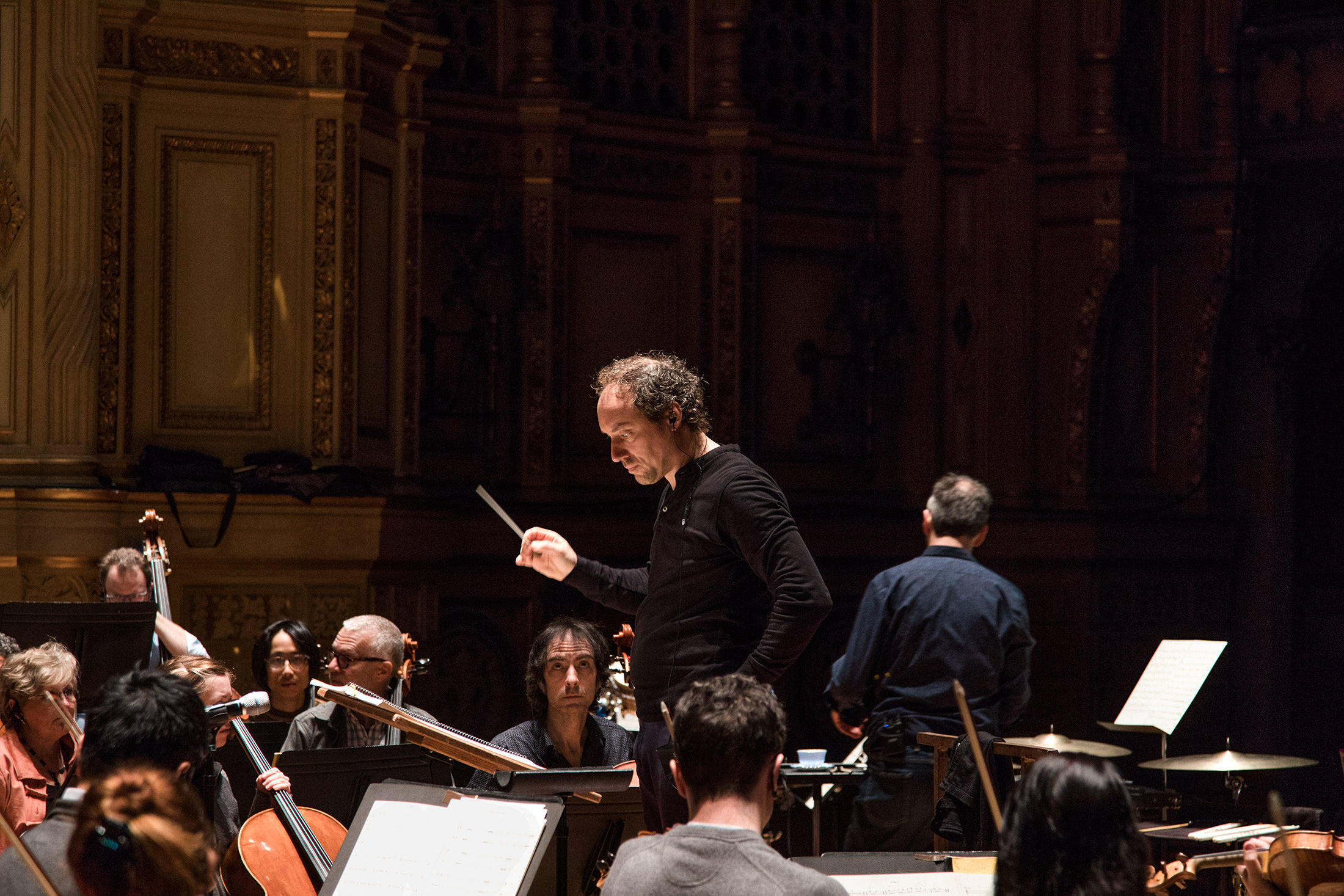
When it comes to choosing a repertoire to play, Tausk collaborates with the VSO’s artistic planner, program committee, and musicians. But he also listens to the audience. “I think it’s really important that the music you play reflects society and your community,” he says. “You should play not only what the hardcore musicians want to play, but also what the people want to hear. But you should also try and offer the audience a new repertoire.” It’s all about striking that perfect balance between giving the crowd the traditional and popular music they already know and like, and also introducing them to something fresh that can enrich their lives. “What I like to do sometimes is play a piece and not say what it is, so that the audience doesn’t know what they are listening to and can make up their mind whether they like it or not,” Tausk says. “When you don’t know what you’re hearing, you start to listen in a very different way. Music becomes something that triggers something or a certain state of mind.” After all, when performed well, music can take us to places far beyond ourselves.
For the VSO’s 2018/2019 season, the opening program included one of Tausk’s favourite composers, Igor Stravinsky, and a performance by opera singer Renée Fleming. Being that this is the orchestra’s 100th anniversary, the lineup represents the past, the present, and, quite significantly, the future. Because although he wants to honour the musical masters of history, as a conductor, Tausk believes he has an obligation to be an advocate for new music, too.
“If we’re not doing it, who will?” he asks. “We have to play new music whether we think it’s good or not. I think that time and the audience will tell us if it’s going to stay or be forgotten. I don’t want music to die out slowly, I want music to survive.” There’s no question that in Tausk, music sure has a fighter.
Get your copy of our Spring 2019 issue here.

